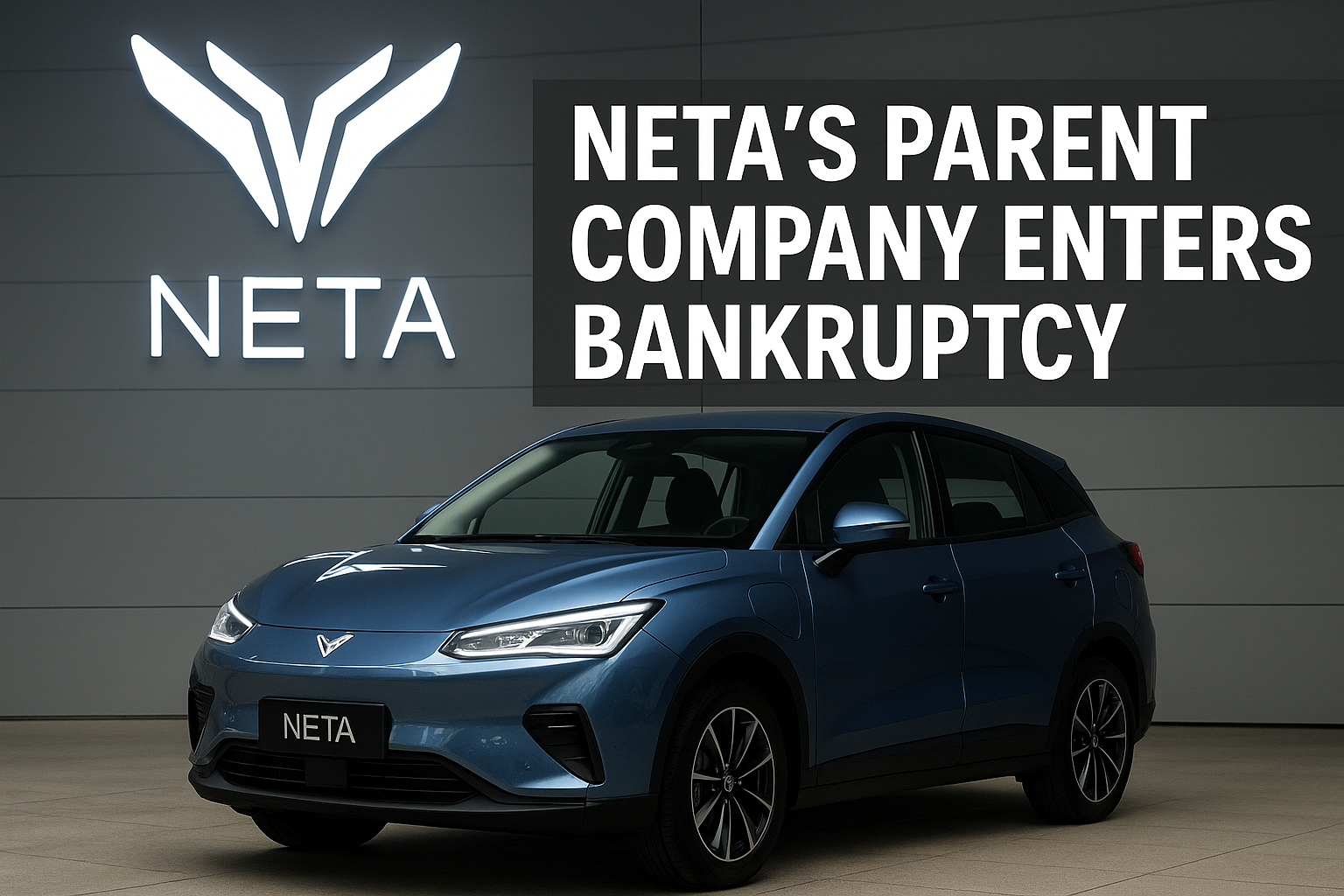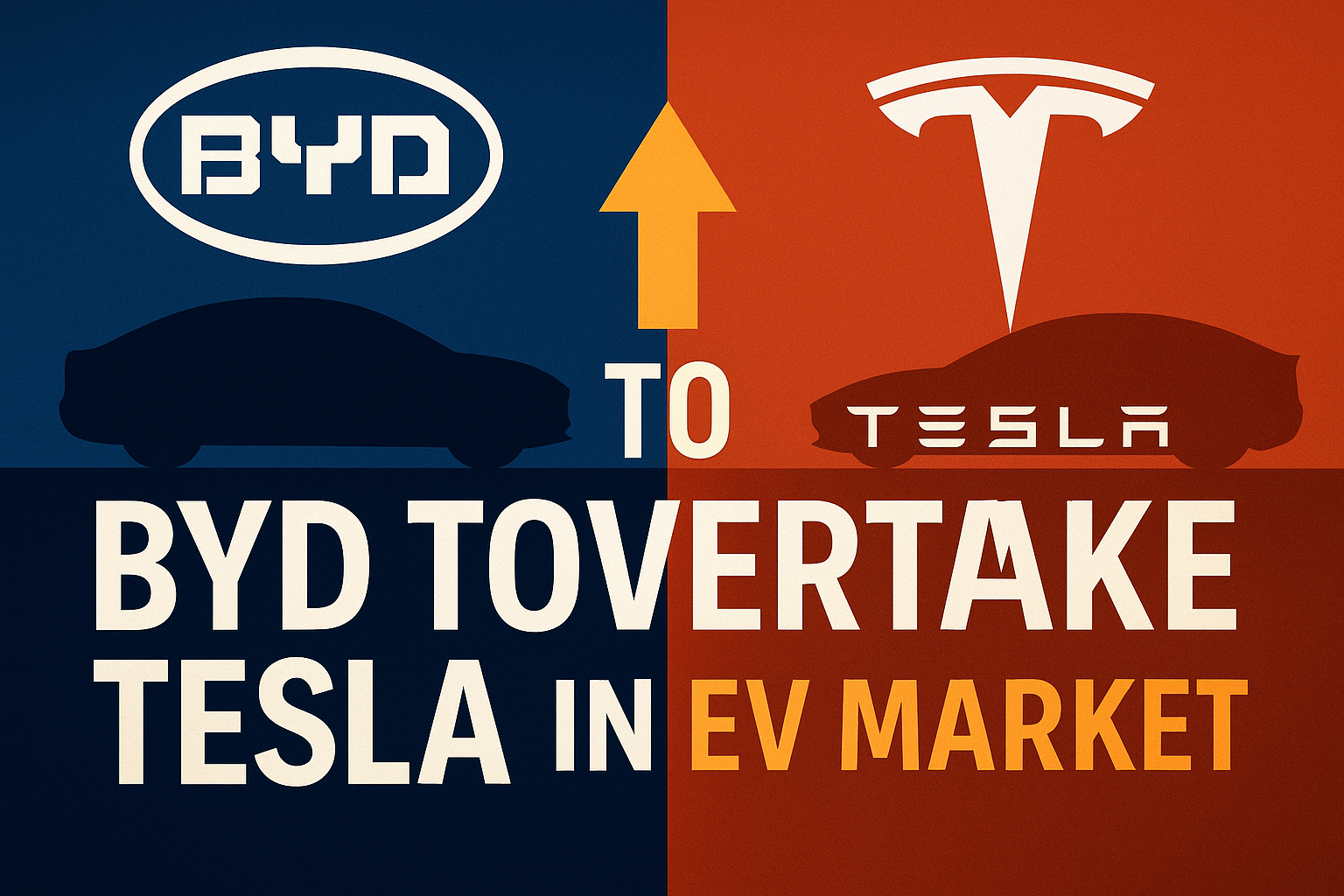Chinese electric vehicle (EV) maker Hozon Auto, the parent company of the once-promising EV brand Neta, has entered bankruptcy proceedings after a creditor filed a lawsuit over unpaid debts. The move marks a dramatic fall from grace for a company once touted as the budget-friendly disruptor in the global EV race.
This legal development follows a series of financial blows, including over ¥10 billion ($1.4 billion USD) in liabilities, staff walkouts, dealer shutdowns, and halted production. What’s more, the company’s collapse now threatens to spill into Southeast Asia, including Thailand, where Neta had expanded aggressively.
From Rising Star to Restructuring Court
Founded in 2014, Hozon Auto entered the EV scene with bold ambitions to compete with Nio, BYD, and Xpeng. Its Neta V and Neta S models were marketed as affordable alternatives for China’s growing middle class and emerging economies in Southeast Asia.
But behind the scenes, Hozon’s business model was under strain. Deep discounts, thin margins, and high overhead costs began to take their toll. On June 19, 2025, a Shanghai court accepted a bankruptcy petition filed by advertising partner Shanghai Yuxing, citing unpaid invoices worth roughly ¥5.3 million (~$730,000).
Insiders claim that Hozon failed to raise a vital round of funding in early 2025, triggering defaults on multiple accounts, and leading to mass layoffs, 75% salary cuts, and protests by unpaid employees outside company offices.
Impact in Thailand: Legally Separate but Tied at the Core
While Hozon Auto is based in China, NETA Thailand operates as a legally independent entity. The company had committed to producing 19,000 EVs under Thailand’s EV 3.0 government subsidy program, with support from both the Thai Board of Investment and the Excise Department.
As of June, NETA Thailand had assembled more than 4,000 vehicles and maintains operations. However:
It has reduced showrooms from 60 to 40 across the country.
Many customers face delays in receiving spare parts, with insurance claims and repairs taking up to 10 months.
Authorities have required Neta to deposit tens of millions of baht in guarantees to prove its capacity to meet EV 3.0 quotas.
According to officials from Thailand’s Ministry of Industry, if NETA fails to meet its production obligations or defaults on service delivery, it risks being delisted from the EV incentive program—a move that could tank future sales and dealer confidence.
What’s Next for Hozon Auto and Neta?
The Chinese court now has six months to approve or reject a restructuring plan. Hozon is rumored to be negotiating a ¥2 billion debt-for-equity swap with over 130 creditors, in hopes of restarting factories and salvaging the brand.
But investor sentiment is waning. Analysts warn that the company’s overexpansion and poor financial controls have left it vulnerable to liquidation, especially if key partners like CATL (its battery supplier) pull out permanently.
Meanwhile, rival EV companies are already circling. There is speculation that a foreign acquisition—perhaps by a Southeast Asian or Middle Eastern investor—could preserve Neta’s brand equity in the region.
Conclusion
Neta’s rise and fall reflects the broader challenges in the hypercompetitive EV sector: rapid growth without solid financial footing can lead to collapse. While operations in Thailand and some markets continue for now, the future of the Neta brand hangs in the balance.
If the restructuring fails, Neta may go down as another cautionary tale of China’s boom-and-bust EV wave. For customers, dealers, and governments in Southeast Asia, the next few months will determine whether Neta can shift gears—or stall for good.



